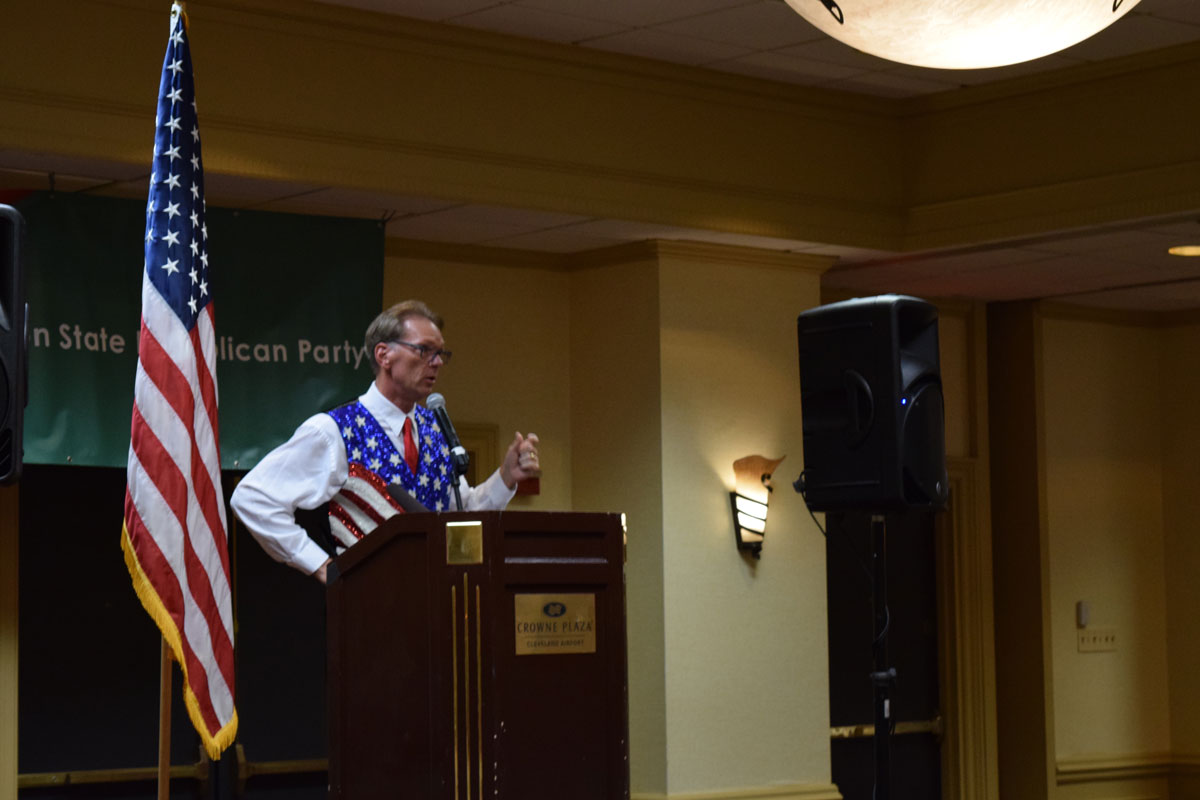CLEVELAND — A procedural vote ended in uproar Monday at the Republican National Convention when disgruntled delegates demanded a roll-call vote on rules binding them to vote for Donald Trump.
Washington state delegates, who are overwhelmingly supporters of Texas Sen. Ted Cruz, were among the anti-Trump forces calling for the vote. Delegates had hoped the revolt would underscore their claims that party leaders were pushing through rules that give too much clout to the GOP hierarchy.
After the move was shot down by party leaders, the defeated mavericks reacted angrily, with some delegates leaving the convention floor and others vowing to not help Trump.
“I have dozens of objections to Donald Trump. Where do I start?” said Eric Minor, 49, a delegate from Gig Harbor who helped to lead the unsuccessful effort to hold a roll call vote. “There’s no party unity here for me.”
Graham Hunt, a former state lawmaker and past chairman of Cruz’s Washington state campaign who serves on the Rules Committee, said RNC committee representatives, along with people he identified as working for Trump, were “putting pressure” on delegates from the nine states who had requested the roll-call vote to change their decision and take their names off the list. In the end, only six states remained.
The contentious start to the convention was a sign of how divided the conservative party’s factions still are over the nomination of Trump and the general direction of the Republican party.
Earlier in the day, Washington state delegates met for breakfast at the Crowne Plaza ballroom in Middleburg Heights, Ohio, to discuss the GOP’s future.
Jeff Kent, a national committeeman from Whatcom County, stressed that though not all of the delegates agreed on the rules and procedures of the convention, they could agree on the common enemy: the presumed Democratic presidential candidate.
“We all can agree 100 percent that we are here to defeat Hillary Clinton,” Kent said to the delegates over breakfast.
Kent was among several speakers who steered clear of any specific mention of Trump, mentioning only a win for a united Republican party.
Ric Fritz, an alternate delegate from Tacoma, said the roll call vote was an attempt to be heard by party leadership.
“I think too many people are sacrificing conviction for the sake of unity too soon in the process,” he said. “While I understand the debate of unity needs to happen, I personally believe it happens Friday.
“Out of 300 million people, the two nominees we came to, I think most people would agree are not the crème de le crème of America. People want to debate the system that led to this, or change the rules that (yielded) this result.”
Dino Rossi, the former state senator and gubernatorial candidate from Sammamish, said Washington delegates still upset by the loss of Cruz need to consider their choices.
“There’s some angst, there’s some people still upset that their guy didn’t make it, I get that,” Rossi said. “But they’re going to have to take a deep breath and look at the options and decide what do they want for the future of America.”
Rossi added he was heartened by Trump’s decision to bring Indiana Gov. Mike Pence on the ballot. He said it could signal hope for the more conservative factions to get on board with the idea of a Trump presidency.
“Pence was a good pick,” Rossi said. “I think a lot of people found comfort in that.”
The Associated Press and McClatchy contributed to this report.
This story was published in The News Tribune in Tacoma, Washington

